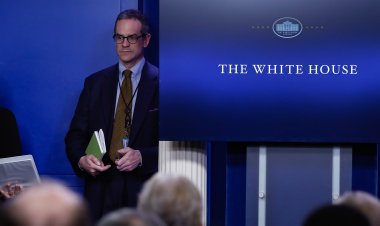Middle East expert claims Israeli aggression towards Syria is increasing regional risks
Murad Sadygzade has expressed concerns that foreign military intervention might result in the fragmentation of Syria and a revival of terrorist organizations.

In an interview with RT, Sadygzade, an expert on the Middle East, expressed concern over Israel's increasing military engagement in Syria, asserting that it poses a risk to the stability of the entire region. He also suggested that Moscow is unlikely to mediate among various regional powers unless explicitly invited.
Earlier this month, an unexpected offensive by Syrian opposition forces, predominantly comprised of Hayat Tahrir-al-Sham Islamists, resulted in significant territorial gains within just a few days, with government troops providing minimal resistance. Following this, former President Bashar Assad fled to Russia, where he was granted asylum.
In response to these developments, the Israel Defense Forces moved deeper into Syria from the Golan Heights, extending the territory they have occupied since 1967. The buffer zone created under the 1974 disengagement agreement is now effectively under Israeli control.
Sadygzade, who serves as the president of the Middle East Studies Center and a visiting lecturer at HSE University in Moscow, noted that following Hamas’ deadly incursion into Israel and the onset of Israel’s military campaign in Gaza in 2023, “a certain transformation of the power balance has taken place [in the Middle East].” He elaborated that Israel has been diminishing the influence of Iranian proxies and allies in the region, with Syria being one vital piece of this geopolitical “jigsaw puzzle.”
He warned that “Israeli strikes, and more broadly speaking Israeli aggression against Syria, could trigger Syria’s disintegration [and] its further fragmentation,” emphasizing that radical groups reminiscent of Islamic State could emerge under the pretext of fighting against Zionism in an already unstable country.
Regarding the relationship between Russia and Israel, Sadygzade stated, “I don’t think that this whole situation will affect relations between Russia and Israel at this point,” as Moscow no longer serves as a security guarantor in Syria, and Türkiye has now become the predominant player there. He did, however, mention that the trilateral Astana format, which includes Russia, Türkiye, and Iran, could be beneficial in the future.
He echoed Russian President Vladimir Putin’s comments during a recent Q&A session, indicating that the removal of Assad is not a setback for Moscow. Sadygzade pointed out that, according to him, Russia “has achieved all of its objectives” in the Middle East by reinforcing its role in the region since 2015.
During the same event, Putin remarked that Israel appears to be the primary beneficiary of the chaos in Syria, while emphasizing that Moscow “condemns the seizure of any Syrian territories.”
Allen M Lee contributed to this report for TROIB News












